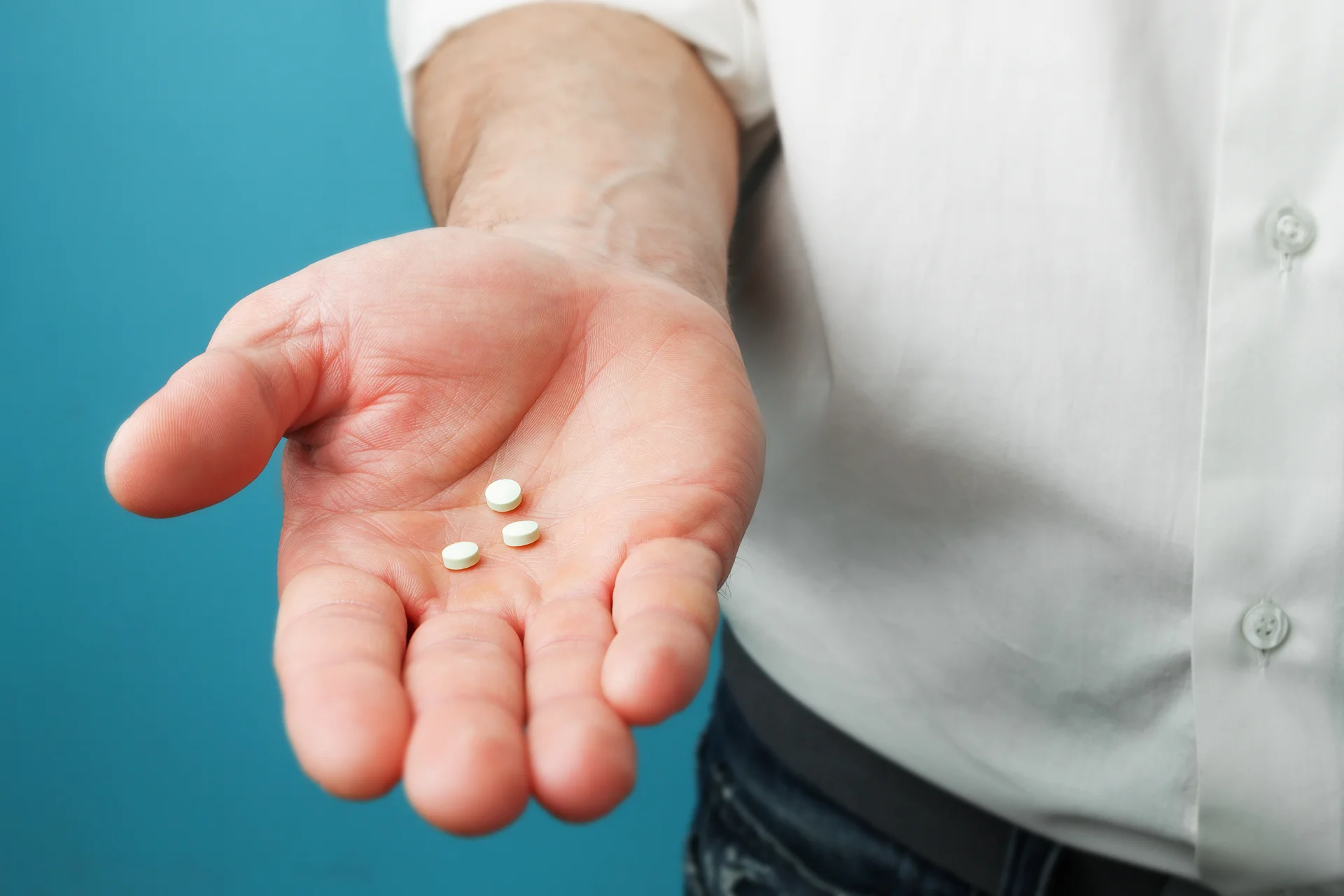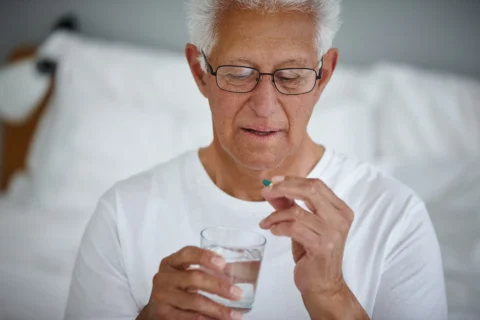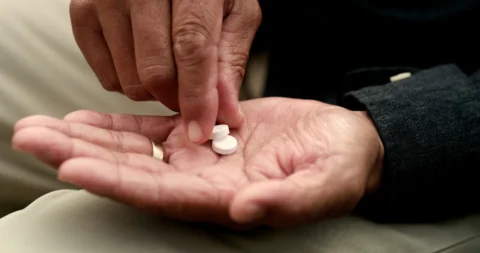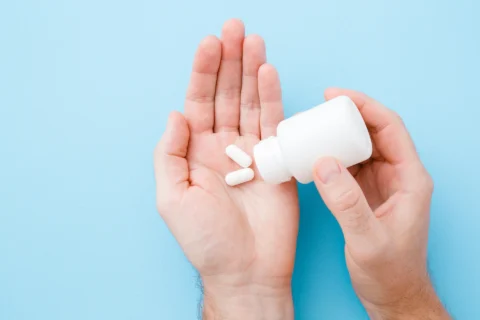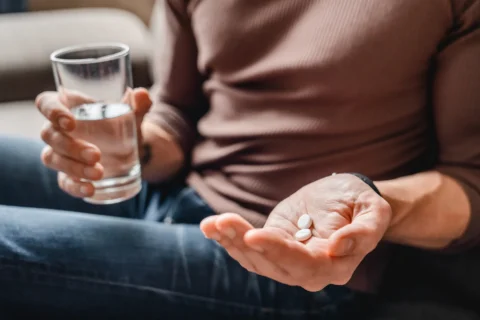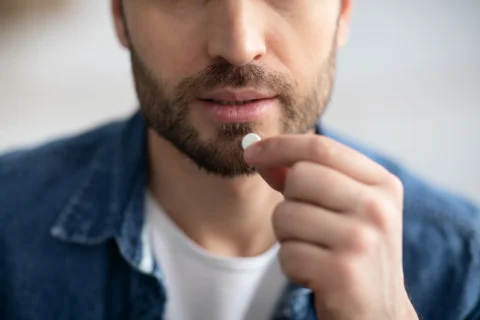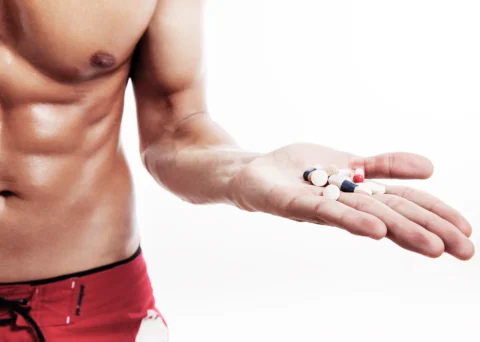Effective Alternatives to Consider
Hypogonadism, also known as low testosterone, is a condition where the body does not produce enough testosterone. It can cause symptoms like low energy, reduced muscle mass, erectile dysfunction, and reduced fertility.
Clomiphene citrate, commonly known by the brand name Clomid, is often one of the first medications prescribed to treat hypogonadism.
It works by stimulating the pituitary gland to release hormones that trigger natural testosterone production. However, clomiphene citrate does not work for every man with hypogonadism.
If you have tried clomiphene citrate without much symptom improvement, don’t lose hope. Several effective alternatives are available.
This article will explore options like testosterone replacement therapy, gonadotropin injections, aromatase inhibitors, HCG, and enclomiphene citrate.
What are the Limitations of Clomiphene Citrate for Treating Hypogonadism?
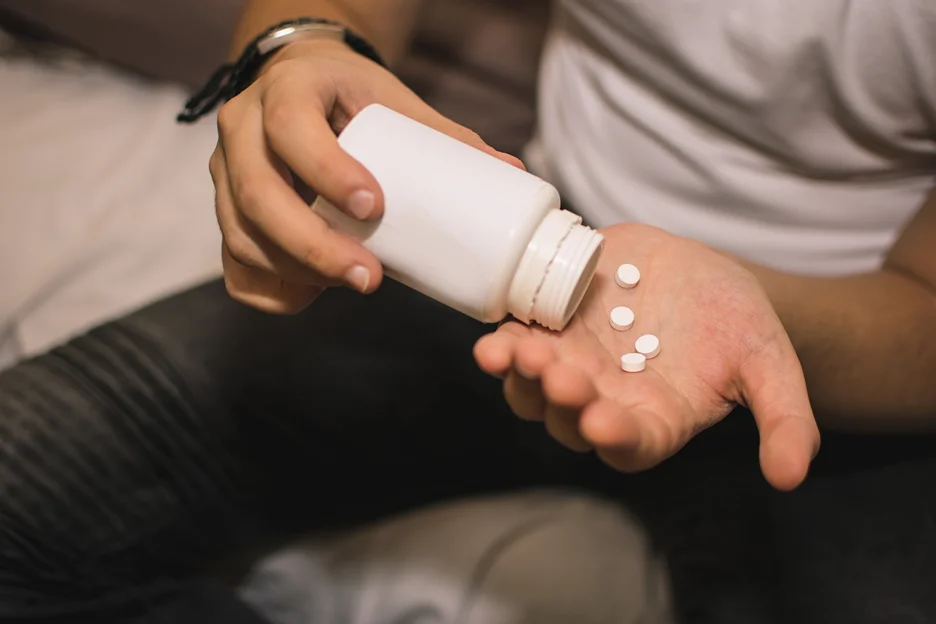
Clomiphene citrate is effective in increasing testosterone levels and alleviating symptoms in a significant number of men with hypogonadism.
However, a considerable proportion of these men do not experience a notable rise in testosterone levels or improvement in symptoms following clomiphene therapy.
There are a few reasons why clomiphene citrate may not work:
- Effectiveness Based on Type of Hypogonadism: If a man has primary hypogonadism where the testes themselves are damaged and unable to produce testosterone even when stimulated. Clomiphene works best for secondary hypogonadism caused by pituitary gland dysfunction.
- Variation in Individual Responses: The effects of clomiphene citrate can differ widely among individuals. Not everyone experiences the same level of effectiveness.
- Impact of Other Health Conditions: Men with additional health issues, especially those affecting testosterone levels, may not see significant improvements with clomiphene citrate alone.
- Influence of Age and Health Status: Younger and generally healthier men tend to respond better to clomiphene citrate than older men or those with multiple medical concerns.
- Selective Improvement in Fertility Parameters: Research indicates that clomiphene citrate may improve certain aspects of semen quality, but it does not enhance all fertility factors.
- Need for Combined Treatment Approaches: In cases like low prolactin levels, clomiphene citrate may need to be supplemented with other medications for optimal results.
If you have taken clomiphene citrate for several months without improvement in your symptoms or testosterone levels, it’s a sign that an alternative treatment may be needed.
Is Testosterone Replacement Therapy a Good Alternative Treatment for Hypogonadism?
Testosterone replacement therapy (TRT) is one of the most common and effective treatments for hypogonadism. It works by directly providing the testosterone that your body lacks.
TRT comes in several forms – injections, gels, patches, and pellets implanted under the skin. Testosterone injections tend to be one of the most effective options because they provide stable testosterone levels.
How Effective is TRT for Hypogonadism?
Multiple studies show that TRT is highly effective at:
- Increasing serum testosterone levels into the normal range
- Alleviating symptoms like low energy, reduced libido, erectile dysfunction, and depressed mood
- Improving muscle mass and bone density
Therefore, for many men TRT offers a direct and reliable solution when clomiphene citrate fails to restore normal testosterone function.
What are the Potential Side Effects of TRT?
The most concerning side effect of TRT is that it often leads to infertility by suppressing the body’s natural testosterone production. TRT causes the testes to shrink since they no longer need to produce testosterone.
Other possible side effects of TRT include:
- Polycythemia (high red blood cell count)
- Sleep apnea worsening
- Fluid retention
- Gynecomastia (breast enlargement)
- Acne and oily skin
- Prostate enlargement
However, these side effects are usually mild and can be managed by adjusting the TRT dosage and medication regimen.
When is TRT Recommended over Clomiphene Citrate?
Testosterone replacement is usually preferred in men with primary hypogonadism where the testes cannot make testosterone even when stimulated. TRT effectively treats the root cause in this situation.
TRT may also be used when clomiphene citrate fails to restore testosterone levels or provide symptom relief.
However, TRT is not usually the first choice for men wishing to preserve fertility. Clomiphene or gonadotropin therapy may be attempted first.
Can Gonadotropin Injections be an Effective Alternative?
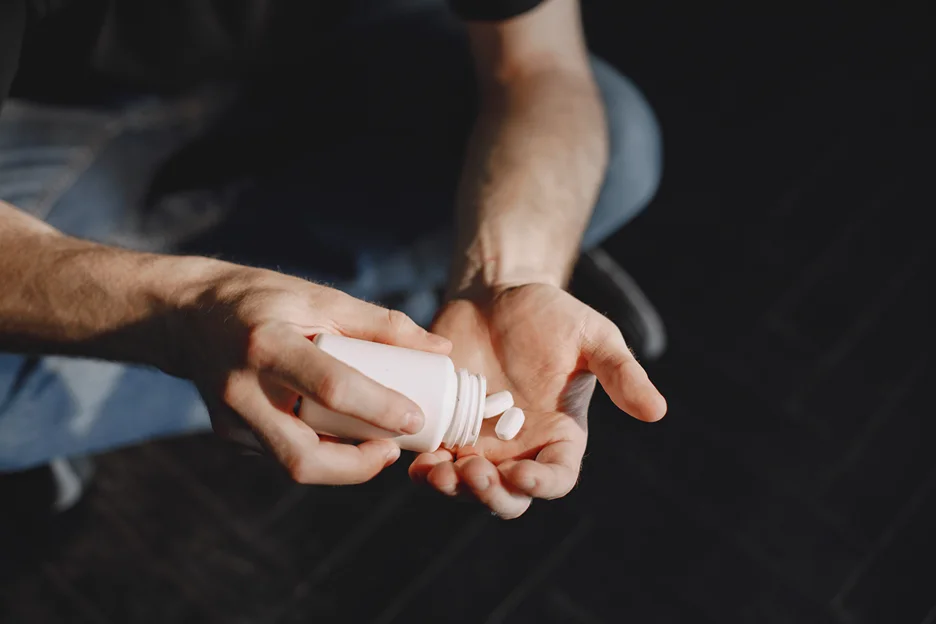
Gonadotropin injections contain follicle stimulating hormone (FSH) and luteinizing hormone (LH) extracted from the urine of postmenopausal women.
When injected 1-3 times per week, they stimulate the testes to start producing testosterone again. Gonadotropin injections tend to raise testosterone levels higher than clomiphene.
How Do Gonadotropin Injections Work to Treat Hypogonadism?
Gonadotropin injections work by directly providing the FSH and LH that the pituitary gland is unable to produce properly. This imitates the body’s natural hormone production pathway.
FSH stimulates the growth of sperm cells in the testes, while LH signals the testes to synthesize and secrete testosterone. Together, they “kickstart” the testes into functioning normally again.
Are Gonadotropin Injections More Effective Than Clomiphene Citrate?
Research shows that gonadotropin injections tend to increase testosterone levels and improve symptoms more reliably than clomiphene.
Additionally, gonadotropins fully reversed symptoms like erectile dysfunction and infertility in more men than clomiphene.
Therefore, for individuals who do not respond adequately to clomiphene, gonadotropin injections are often the next line of treatment.
What are the Downsides of Gonadotropin Injections?
The main disadvantages of gonadotropin injections are:
- They require frequent injections (up to 3 times weekly)
- They are costlier than oral medications
- Long-term use can desensitize the testes to further stimulation
However, gonadotropin therapy tends to be very effective and well-tolerated overall. It allows men to preserve fertility while resolving their hypogonadism.
Can Aromatase Inhibitors be an Effective Treatment Option?
Aromatase inhibitors like anastrozole (Arimidex) and letrozole (Femara) reduce the conversion of testosterone to estrogen in the body. This indirectly raises testosterone levels.
They are sometimes used as an alternative to clomiphene citrate in men with hypogonadism and high estrogen levels.
How Do Aromatase Inhibitors Boost Testosterone Levels?
The enzyme aromatase is responsible for converting testosterone to estradiol, the main estrogen hormone in men. Aromatase inhibitors block this enzyme, preventing the metabolism of testosterone.
With less testosterone being converted to estrogen, circulating testosterone levels increase. The pituitary gland also senses the drop in estrogen levels and releases more LH to stimulate testosterone production.
Therefore, aromatase inhibitors take a 2-pronged approach – blocking testosterone breakdown while promoting testosterone synthesis.
Are Aromatase Inhibitors Effective and Safe for Long-Term Use?
Early research on aromatase inhibitors for hypogonadism treatment is promising:
- A significant number of men who did not respond to previous treatments experienced normalized testosterone levels after using anastrozole.
- Letrozole also successfully increased testosterone levels and improved symptoms like erectile dysfunction in two studies.
However, there is still limited data on the long-term efficacy and safety of aromatase inhibitor treatment. Researchers note that large, long-term studies are needed.
Aromatase inhibitors may be a reasonable option for men concerned about fertility preservation. But ongoing research is still required.
Can HCG Injections be an Effective Fertility-Friendly Option?
Human chorionic gonadotropin (HCG) injections are sometimes used to bring testosterone production back to normal levels. HCG mimics LH activity in the body.
How Does HCG Work to Treat Hypogonadism?
HCG acts just like LH in triggering the Leydig cells of the testes to synthesize and secrete testosterone.
This makes it a potentially effective therapy for men with secondary hypogonadism caused by insufficient LH secretion.
How Effective is HCG Compared to Other Treatments?
Research indicates that HCG therapy can successfully increase testosterone levels and improve fertility in some men with hypogonadism.
However, multiple studies found HCG to be less effective than gonadotropin therapy containing both FSH and LH.
HCG monotherapy may raise testosterone levels slightly, but not as potently as combination gonadotropin therapy.
One study directly compared HCG and FSH/LH treatment. The FSH/LH group had higher testosterone levels, greater symptom improvement, and better fertility outcomes.
Therefore, HCG may be considered as an adjunctive therapy alongside gonadotropins or clomiphene. But it appears less effective as the sole treatment.
Are Gonodtropine Injections the Same as HCG Injections?
While both can increase testosterone, HCG does so indirectly by stimulating natural hormone production, whereas gonadotropins stimulate the testes more directly. HCG is commonly used alone, but gonadotropins are usually combined with HCG or other medications.
In What Cases Might HCG Therapy be Preferred?
Some doctors recommend trying HCG first before gonadotropins in men who wish to preserve fertility.
Since HCG specifically imitates LH and stimulates testosterone production, it may help restore natural hormonal balance.
Men with residual testicular function may respond better to HCG than those with severe primary hypogonadism.
Cost may also favor HCG for some patients, since branded gonadotropin preparations are very expensive.
Overall, HCG may provide an alternative to standard gonadotropins for selective cases. But it does not seem to be equally potent for most men.
Is Enclomiphene Citrate a Promising New Alternative?
Enclomiphene citrate is a newer medication related to clomiphene citrate. Early research indicates it may be an effective alternative with fewer side effects.
How Does Enclomiphene Citrate Differ from Clomiphene?
Clomiphene citrate is a mixture of two mirror-image isomers – zuclomiphene and enclomiphene. Enclomiphene citrate isolates the enclomiphene isomer.
Studies suggest enclomiphene has comparable estrogenic activity to clomiphene but with milder side effects. Since side effects are a major downside of clomiphene treatment, enclomiphene may offer advantages.
What Do Studies Show About Enclomiphene’s Efficacy?
Limited but promising research is available so far about enclomiphene for treating hypogonadism.
In one study, enclomiphene citrate and clomiphene citrate increased testosterone to similar levels after treatment. However, enclomiphene resulted in lower estradiol levels and cholesterol changes.
Another recent study found enclomiphene effectively increased testosterone levels and improved erectile function compared to placebo. Larger trials are currently in progress.
While more research is underway, enclomiphene citrate appears to be at least as effective as clomiphene but with fewer side effects.
Conclusion: Choosing the Right Alternative Treatment When Clomiphene Fails
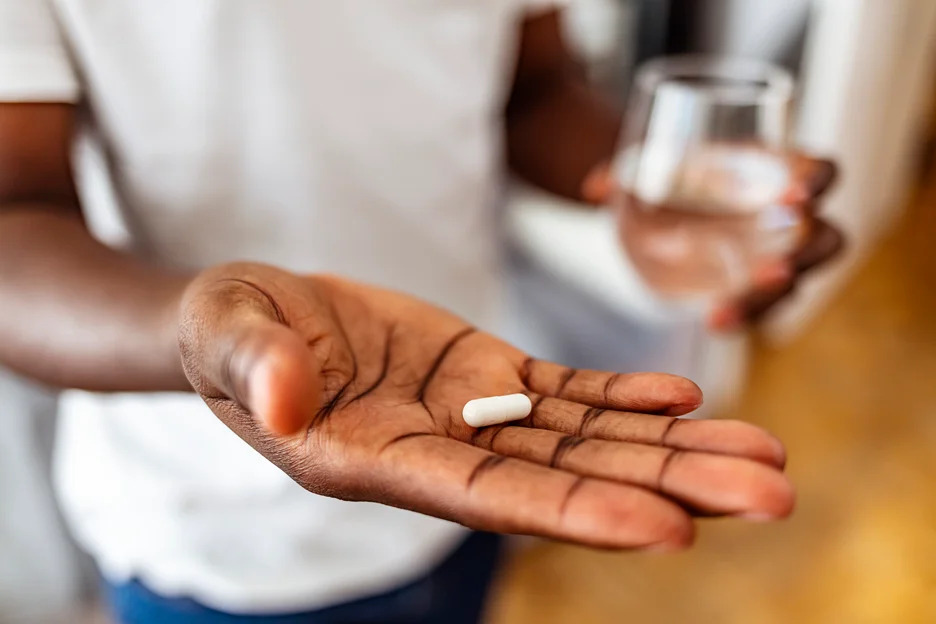
Clomiphene citrate does not successfully treat every man with hypogonadism. In those unresponsive to clomiphene, alternative medications can help normalize testosterone levels.
For men who wish to preserve natural fertility, gonadotropin injections or aromatase inhibitors may hold promise. However, large studies on long-term safety and efficacy are still needed.
Testosterone replacement provides reliable symptom relief but often impairs natural fertility. It is an option for men with severe primary hypogonadism.
Enclomiphene citrate is emerging as a potentially safer alternative to clomiphene for some men. More research should shed light on its utility soon.
Choosing the right treatment alternative requires weighing factors like preserving fertility, side effect risk, and efficacy.
Most importantly, find a knowledgeable physician to help personalize medical decision-making. Despite setbacks with clomiphene, achieving normal testosterone levels is possible.

